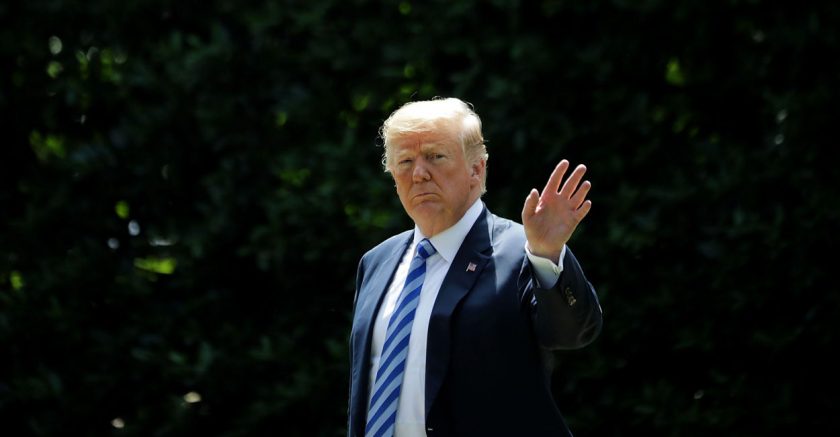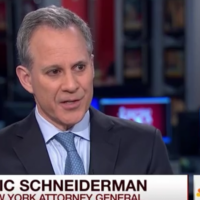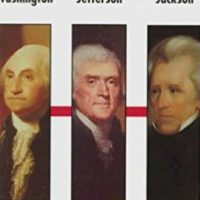The personal legal team for President Donald Trump argued in support of broad presidential powers in a letter to special counsel Robert Mueller—and Trump advanced his own legal arguments on Twitter on Monday.
John Dowd, Trump’s former personal lawyer who the president fired in March, and Jay Sekulow, still on the team, wrote the 20-page letter to the special counsel in January, which was first reported by The New York Times on Saturday.
The letter raised numerous legal and constitutional questions.
The president on Monday tweeted that he has the authority to pardon himself—but added that he wouldn’t need to, because he hadn’t done anything wrong. He later said the special counsel was unconstitutional.
Here’s a look at what legal and constitutional experts have to say about key questions surrounding the Mueller probe of Trump, Russian meddling in the 2016 presidential campaign, and potential obstruction of justice.
1. Can a President Pardon Himself?
Trump tweeted Monday:
As has been stated by numerous legal scholars, I have the absolute right to PARDON myself, but why would I do that when I have done nothing wrong? In the meantime, the never ending Witch Hunt, led by 13 very Angry and Conflicted Democrats (& others) continues into the mid-terms!
— Donald J. Trump (@realDonaldTrump) June 4, 2018
Trump could be correct, said Robert Ray, the last prosecutor to get a plea agreement from an outgoing president, President Bill Clinton in 2001. However, that’s not entirely clear.
“A president’s pardon powers, if not unlimited, are almost absolute,” Ray told The Daily Signal in a phone interview.
The Constitution grants Congress the power to impeach and remove a president if it determined such a self-pardon was beyond the pale, Ray said.
Casting some doubt on self-pardoning, Ray noted the Constitution, in addressing impeachment, says:
Judgement in Cases of Impeachment shall not extend further than to removal from Office, and disqualification to hold and enjoy any Office of honor, Trust or Profit under the United States: but the Party convicted shall nevertheless be liable and subject to Indictment, Trial, Judgement and Punishment, according to Law.
That, Ray said, would likely have to be determined by a court.
“Impeachment is one process, and the justice is another process,” Ray said. “Theoretically, it would be up to a court. A president could pardon himself, but when he leaves office, it might be ineffective.”
A court hasn’t decided on the matter. But, a Justice Department memo in the heat of the Watergate scandal said a president cannot pardon himself.
The Aug. 5, 1974 memo by Acting Assistant Attorney General Mary Lawton wrote, “Under the fundamental rule that no one may be a judge in his own case, the President cannot pardon himself.”
White House press secretary Sarah Huckabee Sanders said Monday the president doesn’t need to pardon himself.
“Thankfully, the president hasn’t done anything wrong and wouldn’t need a pardon,” Sanders told reporters.
When asked if the president thought he was above the law, Sanders responded, “Certainly no one is above the law.”
Ray took over as independent counsel investigating President Bill Clinton when Ken Starr stepped aside. Clinton was impeached by the House in 1998 for perjury and obstruction of justice in connection to the Monica Lewinsky scandal. The Senate subsequently acquitted him.
On Clinton’s last full day in office, he admitted he was dishonest under oath and surrendered his law license for five years.
While the matter hasn’t been tested, the Justice Department’s Watergate era ruling could be the most firm statement so far, said Richard Roth, a corporate lawyer in New York and frequent legal commentator.
“No American president has ever tested this legal issue. Nor has a court ever ruled on the question of whether such an extreme action is allowed under the U.S. Constitution,” Roth told The Daily Signal. “But, again, when the Justice Department was faced with the possibility that President Richard Nixon might try to pardon himself, a senior attorney at the DOJ took the position that he could not.”
A pardon linked to a particular offense clears a person from all prosecutions for that offense, said Hans von Spakovsky, senior legal fellow for The Heritage Foundation.
“The president’s pardon power in Art. II, Sec. 2, Clause 1 is virtually unlimited,” von Spakovsky told The Daily Signal in an email. “He can issue a pardon to anyone for the violation of any federal laws, although the pardon power does not cover civil or state cases, and a pardon can be given either pre- or post-conviction.”
That near-absolute pardon power doesn’t cover impeachment, von Spakovsky added.
“The only other limitation in the Constitution is that the pardon power doesn’t extend to ‘Cases of Impeachment,’” he said. “So, while a president could theoretically issue himself a pardon if he were charged with any criminal offenses, the pardon would not prevent him from being impeached by Congress.”
2. Is the Special Counsel’s Probe Legal?
In another tweet later Monday, Trump questioned the constitutionality of special counsel Mueller’s probe.
See the full story here.
Want more BFT? Leave us a voicemail on our page or follow us on Twitter @BFT_Podcast and Facebook @BluntForceTruthPodcast. We want to hear from you! There’s no better place to get the #BluntForceTruth.







